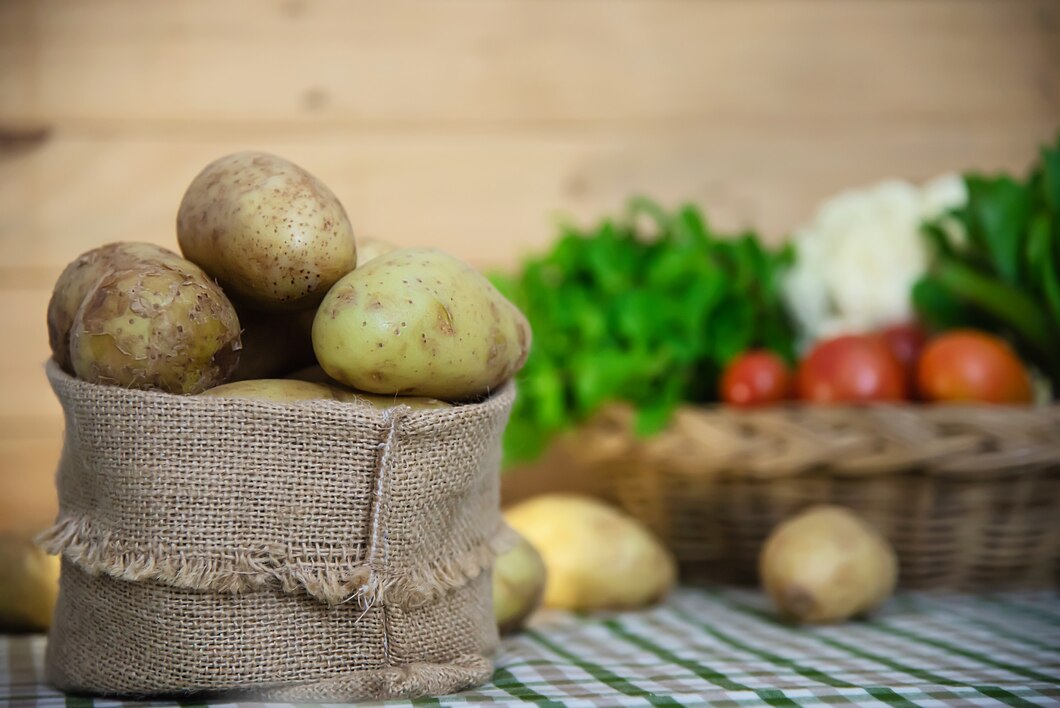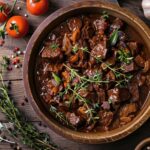Cooking is not just about enhancing flavors and textures; it’s also crucial for ensuring food safety. Some foods, if not prepared and cooked correctly, can be harmful or even poisonous. Here are ten such foods that require proper handling and cooking to ensure they are safe to eat.
1. Potatoes
Potatoes contain solanine, a natural toxin that can be harmful in high quantities. This toxin is more concentrated in green or sprouting potatoes.
Safety Tip:
- Avoid eating green or sprouted potatoes.
- Store potatoes in a cool, dark place to prevent greening and sprouting.
- Peel and cook potatoes thoroughly.
2. Red Kidney Beans
Raw or undercooked red kidney beans contain high levels of phytohaemagglutinin, a toxin that can cause severe nausea, vomiting, and diarrhea.
Safety Tip:
- Soak the beans in water for at least 5 hours.
- Boil them for at least 10 minutes to destroy the toxin.
- Simmer until fully cooked and tender.
3. Chicken
Raw or undercooked chicken can be contaminated with harmful bacteria such as Salmonella and Campylobacter, which can cause food poisoning.
Safety Tip:
- Cook chicken to an internal temperature of 75°C (165°F).
- Avoid cross-contamination by using separate utensils and cutting boards for raw chicken.
4. Cassava
Cassava, also known as yuca, contains cyanogenic glycosides, which can release cyanide when improperly processed or eaten raw.
Safety Tip:
- Peel and soak cassava in water for several hours before cooking.
- Boil or bake cassava thoroughly before consumption.
5. Pufferfish (Fugu)
Pufferfish contains tetrodotoxin, a potent neurotoxin that can be fatal if ingested in sufficient quantities. Only specially trained and licensed chefs should prepare pufferfish.
Safety Tip:
- Only eat pufferfish prepared by certified chefs.
- Avoid home preparation of pufferfish.
6. Rhubarb
Rhubarb leaves contain oxalic acid and anthraquinone glycosides, which are highly toxic and can cause serious health issues if ingested.
Safety Tip:
- Discard rhubarb leaves and only consume the stalks.
- Cook rhubarb stalks thoroughly to reduce any residual oxalic acid.
7. Fiddlehead Ferns
Raw or improperly cooked fiddlehead ferns can cause food poisoning symptoms such as nausea, vomiting, and diarrhea.
Safety Tip:
- Wash fiddlehead ferns thoroughly.
- Boil them for at least 10 minutes before sautéing or steaming.
8. Lima Beans
Raw lima beans contain linamarin, which can release cyanide when consumed.
Safety Tip:
- Boil lima beans for at least 10 minutes.
- Avoid consuming raw or undercooked lima beans.
9. Shellfish
Shellfish can harbor harmful bacteria, viruses, and toxins, such as Vibrio and paralytic shellfish poisoning (PSP) toxins.
Safety Tip:
- Ensure shellfish is sourced from reputable suppliers.
- Cook shellfish thoroughly, as heat can destroy most bacteria and viruses.
10. Elderberries
Raw elderberries and other parts of the elderberry plant contain cyanogenic glycosides, which can cause nausea, vomiting, and diarrhea.
Safety Tip:
- Cook elderberries thoroughly before consumption.
- Avoid consuming raw elderberries, leaves, stems, and roots.
Understanding the potential dangers of certain foods and knowing how to cook them properly is essential for food safety. By following the safety tips provided, you can enjoy these foods without the risk of poisoning. Always prioritize proper handling, preparation, and cooking to ensure that your meals are not only delicious but also safe to eat.








